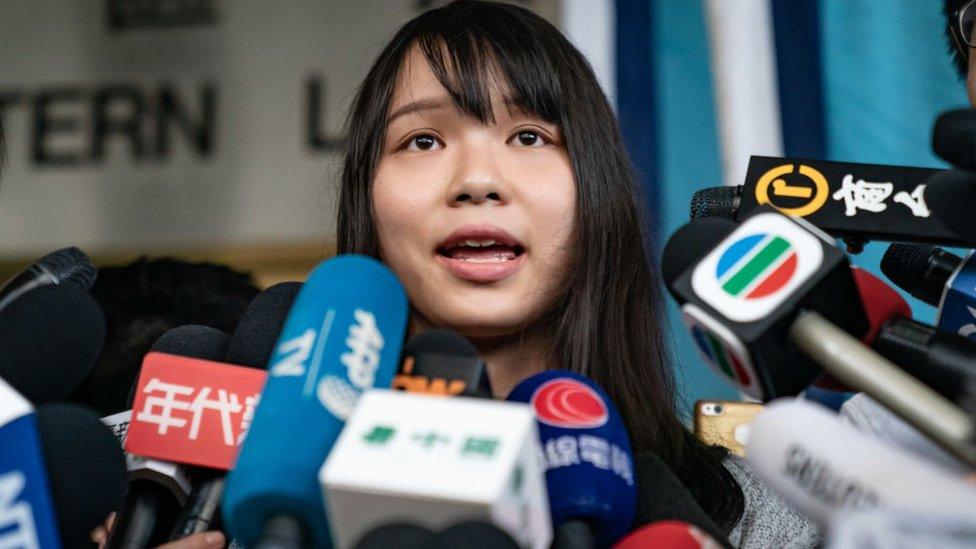Tony Chung: Student activist flees Hong Kong to seek asylum in UK
- Published
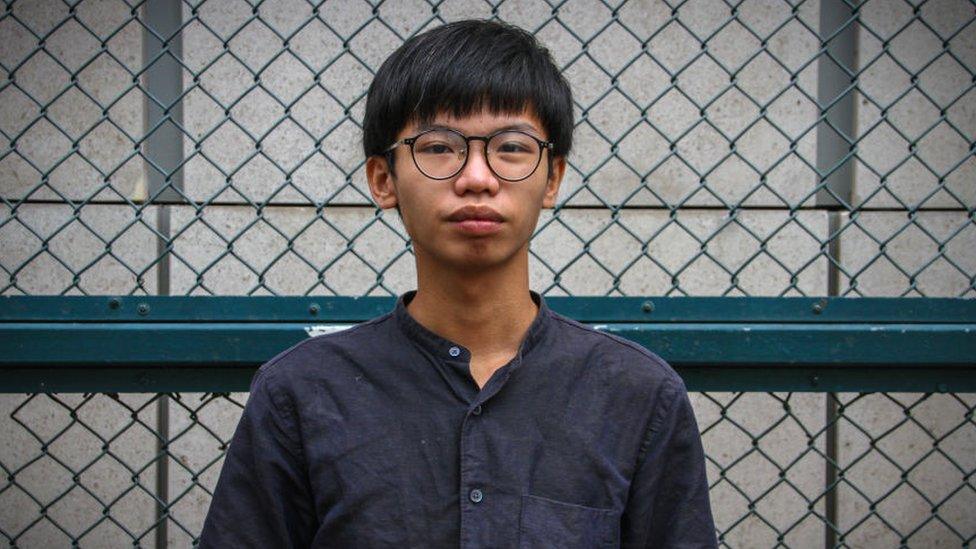
Tony Chung was a former leader of a fringe pro-independence group called Studentlocalism
A prominent pro-democracy activist has fled Hong Kong to seek asylum in the UK, breaching a supervision order.
Tony Chung, 22, told the BBC he had been under constant scrutiny in Hong Kong, where police had put him under an "enormous amount of stress".
He also claimed he had felt compelled by police to become a paid informant, giving information on fellow activists.
Chung was convicted of calling for Hong Kong's secession under a tough security law. He finished his sentence in June.
But upon his release, he says he was thrown into a situation that was "an even bigger and more dangerous prison" than the one he had left.
He is under a one-year supervision order which required him to apply for permission to travel overseas. Authorities allowed him to go to Japan on 20 December for a six-day holiday.
While he was there, he said he started crying at the thought of not returning to Hong Kong and decided to seek asylum in the UK.
Chung is one of several pro-democracy protesters who have fled Hong Kong in recent years.
Following months of mass demonstrations in 2019, Beijing imposed a strict national security law which it said was needed to bring stability to the city. The legislation, which outlaws many forms of dissent, has been widely used against activists like Chung.
Asked about his decision to request asylum, Hong Kong Police said some people who had committed crimes "endangering national security" had betrayed "trust and integrity" by breaching supervision orders or bail decisions to leave the city.
"Not only have they failed to reflect on the harms they have caused to Hong Kong and members of the public, but they have also shamefully begged for assistance from foreign anti-China forces under the guise of being victims," the force added.
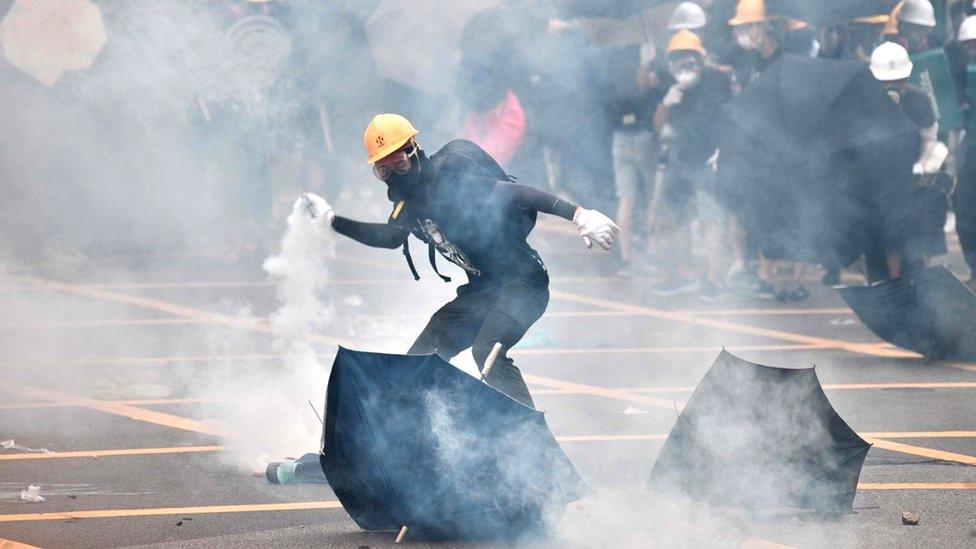
The protests calling for more democracy in Hong Kong often escalated into violent clashes
In late 2021, he was sentenced to three years and seven months in prison for arguing that Hong Kong should pursue independence. Studentlocalism, the fringe group he led, had disbanded before the law came into force.
He was also found guilty of insulting the national flag in a separate case in December 2020. He had been arrested near the US consulate in October of that year - supporters say he had been on his way to claim political asylum.
Chung claimed that after his release on 5 June, the national security police requested meetings with him every two to four weeks, questioning him on every detail of his activities, including information about anyone he was meeting and in contact with.
"They told me they are going to meet up with me regularly in the following year," he said. "How could I reject them? I cannot say no to them at all."
He said police also asked him to report the whereabouts and activities of other pro-democracy activists in Hong Kong.
"Although I insisted on only providing irrelevant information, I couldn't face the fact that I am giving out other people's information to the police," Chung said.
When the police were dissatisfied with his answers, they used intimidation to coerce him into divulging more information, he said.
"They told me... they need me to prove I am trustworthy and have nothing to hide. This put me under an enormous amount of stress. I [couldn't] tell those people that they had already been targeted."
A confidential declaration he signed before his release from prison restricted him from disclosing the interactions with the national security police to any third parties, including lawyers, he said.
After two months of regular meetings, the police offered him money, ranging from HKD$500 ($64; £49) to HKD$3,000, after their conversations, he said.
He said he felt he "didn't have a choice" - because not accepting the payments would raise suspicions he was being "uncooperative".
But taking the money made him feel guilty. "Although the information I gave is not likely to lead to any tangible consequences, I still feel that way," he said.
Chung added that he felt like he had no control over his life, adding that police had all his personal information, including copies of bank details, student ID and school schedule, on file.
"I could never relax, not even for a second," he said, adding that even something as simple as a walk became stressful to him - as he felt he constantly had to think about how to justify his actions to police and feared arrest.
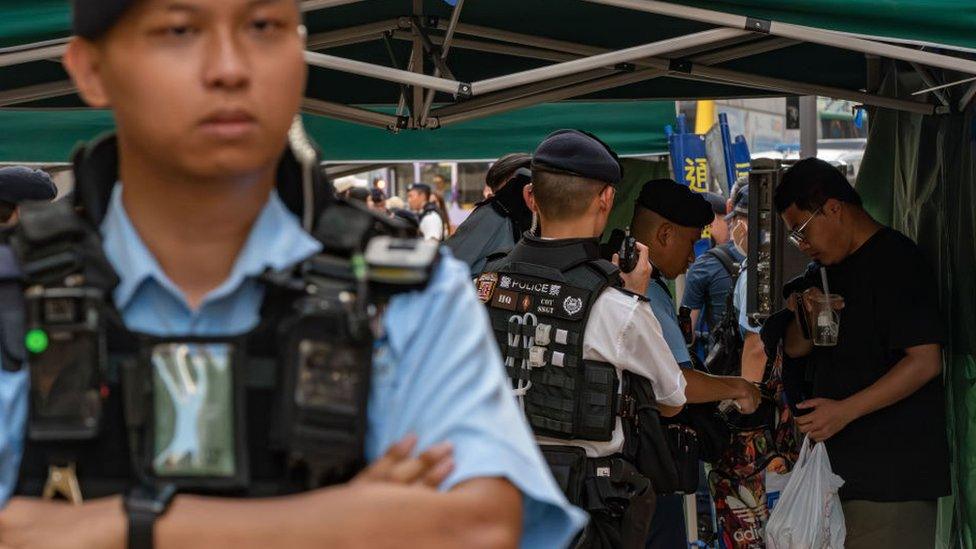
The police required regular meetings and wanted to know who he was in touch with, Tony Chung said
As the constant pressure weighed on his mental and physical health, he started to plan to travel abroad. The Hong Kong Correctional Services authorised him to travel to Japan from 20 December on condition he came home on 25 December.
"As I was planning my next steps in the hotel [in Japan], I started crying. I had thought of the reality of having to leave Hong Kong one day, but I still wasn't prepared for leaving this soon," he said.
"But the decision is irreversible now, at least in the near future."
Now he's in the UK he hopes to resume his studies and focus on regaining his health.
"And after I have settled down, I hope I can still do something for Hong Kong."
Earlier this month, high-profile pro-democracy activist Agnes Chow announced on social media that she had jumped bail and would not return to Hong Kong following her studies in Canada.
Chow, who was arrested for "colluding with foreign forces" under the national security law, also pointed to the tight government restrictions. She was granted permission to study abroad while under investigation.
While Chow and Chung are now among pro-democracy activists outside Hong Kong, many others remain on trial in the territory.
Imprisoned media tycoon Jimmy Lai is charged with multiple national security offences, which include "colluding with foreign forces".
A group of 47 pro-democracy campaigners and lawmakers have also been accused of endangering national security by organising an unofficial primary election. The trial finished its closing arguments in early December.
Related topics
- Published3 July 2023
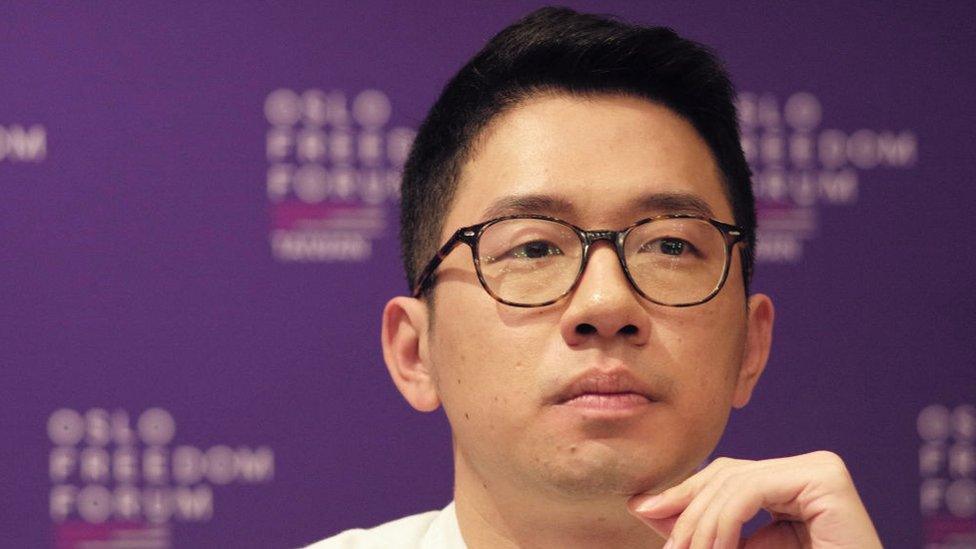
- Published29 October 2020
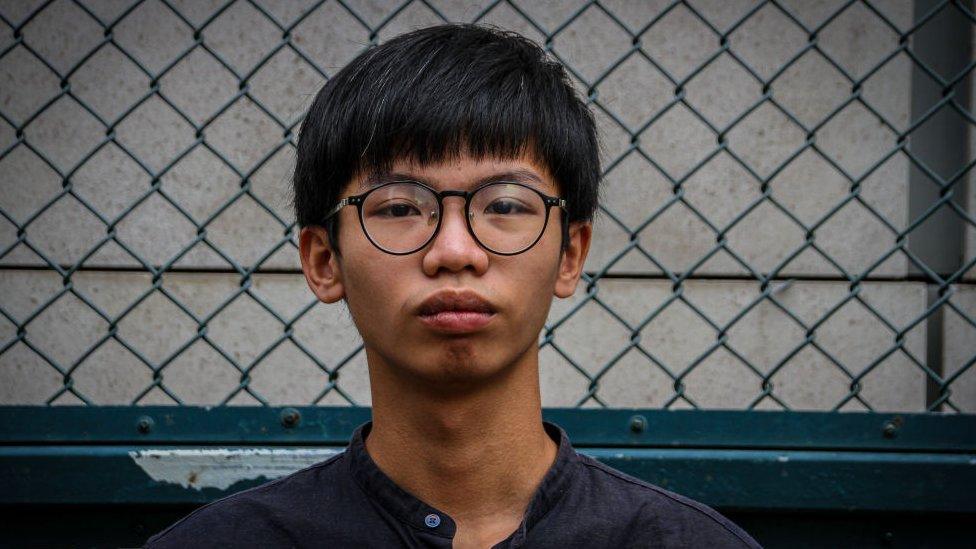
- Published25 September 2022
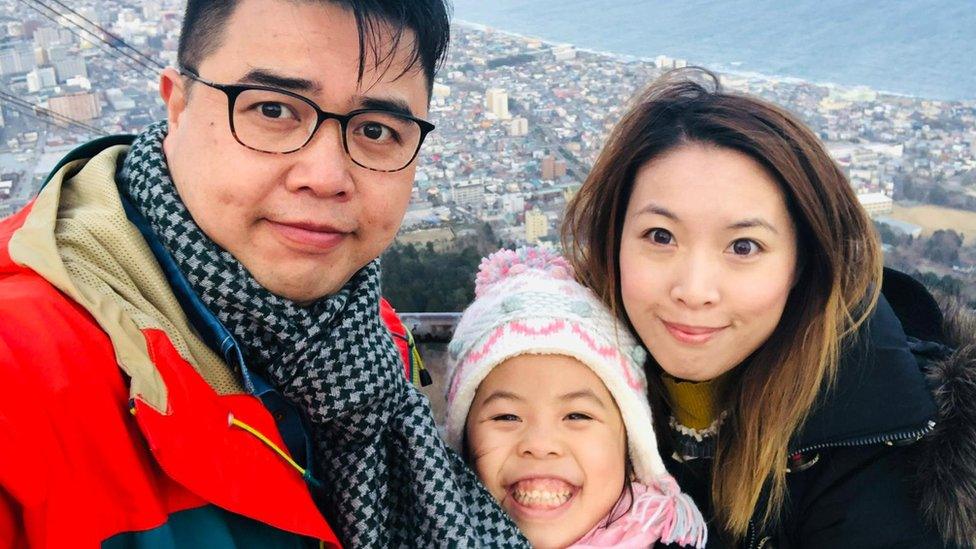
- Published7 December 2023
